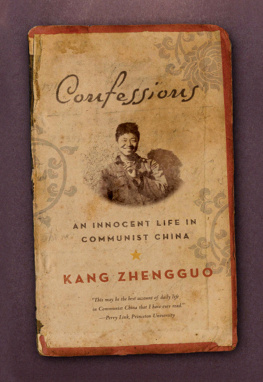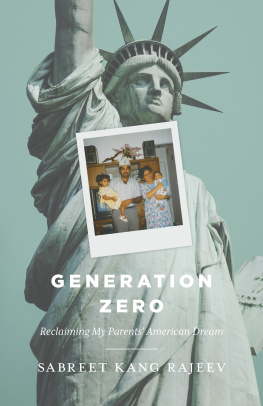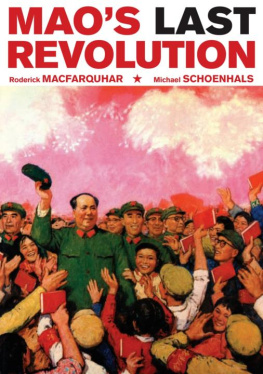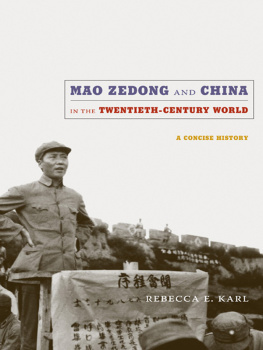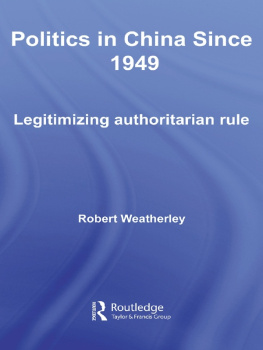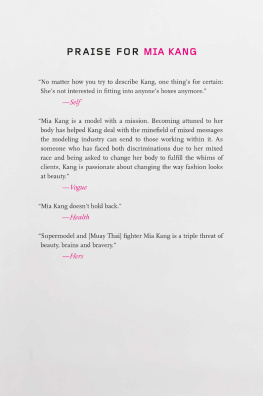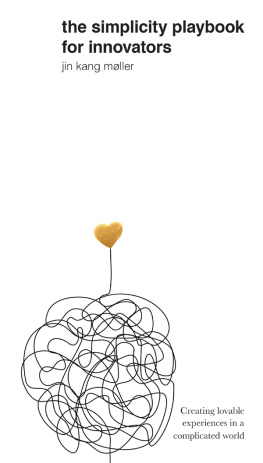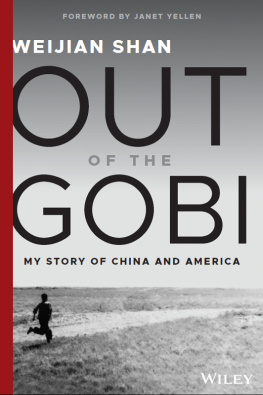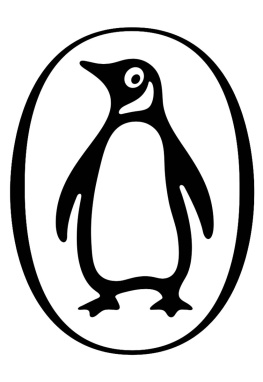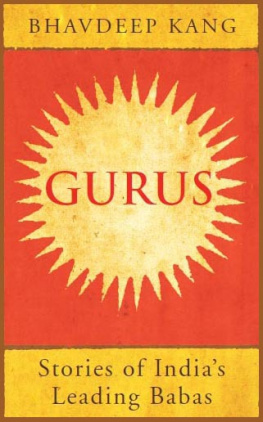CONFESSIONS
An Innocent Life in Communist China
KANG ZHENGGUO
TRANSLATED BY SUSAN WILF

W. W. Norton & Company New York . London
Copyright 2005, 2004 by Kang Zhengguo
English translation copyright 2007 by SusanWilf
Introduction copyright 2007 by Perry Link
Originally published in Chinese under the titles Wo De Fan Dong Zhi Shu and Chu Zhongguo Ji
All rights reserved
For information about permission to reproduce selections from this book, write to permissions, W. W. Norton & Company, Inc., 500 Fifth Avenue, New York, NY 10110
Library of Congress Cataloging-in-Publication Data
Kang, Zhengguo.
[Wo de fan dong zhi shu. English]
Confessions: an innocent life in Communist China / Kang, Zhengguo; translated by Susan Wilf.
p. cm.
Includes bibliographical references.
ISBN: 978-0-393-06976-1
1. Kang, Zhengguo. 2. Authors, Chinese20th centuryBiography. I. Title.
PL2869.N565Z47713 2007
895.1'351dc22
[B]
2006103103
W. W. Norton & Company. Inc., 500 Fifth Avenue, New York, N. Y. 10110 www.wwnorton.com
W. W. Norton & Company Ltd., Castle House, 75/76 Wells Street, London WIT
Opposition is the movement of the Dao.
L AOZI
Contents
LIST OF ILLUSTRATIONS
The Kang family, 1945
The Kang family, 1960
Kang Zhengguo following his release from detention, 1965
The walls of the Number Two Brickyard
The remains of the east kilns in 2004
Grandfather
Shuci, Shuzhi, and Zhengguan, 1966
Zhengguan and Zhengguo, 1971
Xinwang Village, ca. 1995
The house Kang shared with Li Baoyu in Xinwang Village, 1994
Li Baoyus kang , 1994
The Kang family, 1974
The painting of Silent Garden
INTRODUCTION
T HIS MAY BE the best account of daily life in Communist China that I have ever read. It stands out not because it recasts the broad outlines of history but because of the extraordinarily lifelike quality of the writing and the credibility of its account of life under Mao. Hundreds of writers of both fiction and nonfiction have given accounts of the people (aka the masses) during Chinas Mao years, but nearly all use an ideological lens that flattens the perspective and homogenizes the background, indeed starches the clothing, tidies the town square, recolors the sky, and, most important, tells you what to think about a social problem in terms that are usually oversimplified and often grossly false. This account, in contrast, is clear-eyed.
After Mao there was a quick literary reaction against much that Mao had done but not so much against the Maoist style of writing. The scar literature of 197880 reversed direction on some key points (Maos top lieutenants, once infallibly correct, now included the all-evil Gang of Four; the Cultural Revolution was not glorious but violent and bloody; corruption, formerly unmentionable, was acknowledged as a big problem). But the colored lens problem persisted; only some of the colors had changed. Maoist literary style survived as a habit even among writers who consciously sought to pull themselves free from Maoist ideology. For a few who became aware of this problem, the quest for self-extrication itself became a sort of obsession, and this too created problems when they tried to look squarely at history.
Kang Zhengguo, who never bought into Maoism, does not have to tell us how he got out of it. His writing is a powerful indictment of life under Mao but not because he is pushing any alternative ideology. What he gives us is daily experience written from the ground up, as it were, and with a charming transparency that spares no one, including himself; the prose conveys a sense of authenticity that is extremely rare in accounts of life in Communist China. It is startling, when you think of it, that the world has so far had almost no honest accounts of daily experience in a country as large as China over nearly half a century of its modern history. Here, though, we do have one.
Although Kang reveals a great deal about ordinary life in China, his own path is not exactly ordinary. He is by nature an adversative character, a square peg unsuited to the round holes laid out by authorities of any kind, be they his father, his school, his wife, or the Communist Party of China. He thinks for himself and is a bit too quick to assume that if something makes sense to him, it ought to make sense to everybody and therefore be acted upon. His wife says of him, You always stick your neck out when everybody else has the good sense to lie low. Yet Kangs blunt approach turns out to be an excellent tool for exposing the submerged textures of everything around him. While most of his contemporaries submit to authority, get used to doing so, and eventually regard this as so normal that they become entirely unaware of the patterns that their own lives are observing, Kang does none of this. He trundles his way through life rather like a good-natured rhinoceros, ignoring boundaries, inadvertently dislodging rocks, and occasionally trampling the tails of snakes that spring up to bite him. We follow him from college to brick factory to labor camp to prison and finally into rural exile. The odyssey is revelatory at every stage.
For the social historian, Kangs book opens the door on the mechanics of the Mao-era control system. We get to see, for example, how the use of the official stamp to coerce conformity had a power that went far beyond the particular issue at hand. You want a job? A residence permit? A marriage license? From the point of view of the omnipresent control system, exactly what it is that you want is almost irrelevant. The important point is that I, the official, have the power to withhold it from you, the supplicant, and this power gives me leverage over every aspect of your life, whether related to your request or not. You want that marriage license? Behave better at work. You want a job assignment? Submit to authority in your neighborhood. And so on. The smart way to handle such pressures is to learn to toady. Kangs way (and he was not alone here; a number of the inmates in the labor camps and prisons are like him in this regard) is to reason on principle, to resist, and in consequence to be snared by the system and labeled a troublemaker in a broad sense that follows one wherever one goes, year after year.
Once snared, miscreants are squeezed. After Kang has been expelled from college and sent home, he finds that his ration coupons have been withheld. He has to impose on the rations of family members, and this makes him feel an increasing pressure to move out. But then he findsand this pattern repeats itself several timesthat the only route out is down . You can leave home, but only by volunteering to live and work at a squalid brick factory. You dont like the factory? You can leave (farther down the social scale) for a rural labor camp. Your counterrevolutionary record is getting the better of you? You can renounce your past, your childhood, your family name, your everything and offer yourself as an adopted son to an elderly bachelor in the countryside. No problem! A few banquets and gifts to grease the wheels, and we in the system can arrange all this for you. The bizarre comes to seem so normal that the simplest of unapproved human expression resembles the derring-do of a spy; an old friend silently passes a note about where to meet, at a later time, for frank talk in a cornfield. Watching Kang spiral downward, the reader is led to muse on the mechanics of social mobility in the other direction. Just what kind of behavior would help one rise within a system like this?
Following Kang on his tour of the innards of the Mao years, we come to see the surface impressions of that era quite differently. Take the Great Proletarian Cultural Revolution, for example. How much writing has there been about its radical zeal, its pushing of Communist theory and practice to a new level? Kang does not bother to tell us that this writing is superficial. He just relates what he saw and heard in daily life and in passing makes clear that much of the popular rage that burst forth during the Cultural Revolution was born of recoil from what the Communists had already done, not from a demand that they do more of it. The Cultural Revolution also brought Kang more, not less, access to bourgeois pleasures like reading non-Communist books, smoking cigarettes, and chatting with friends.

